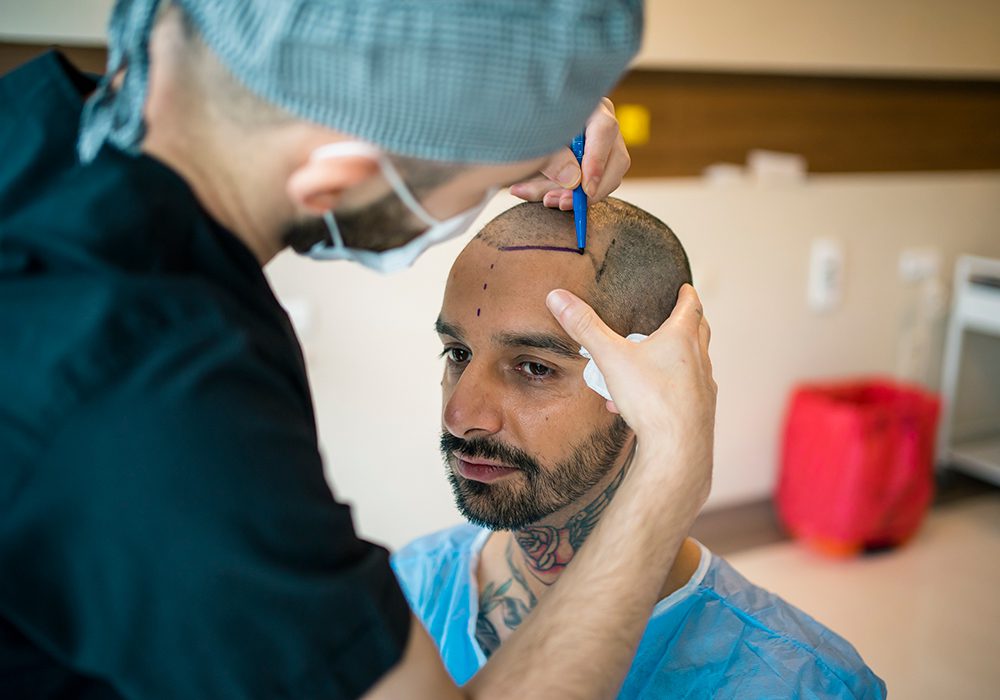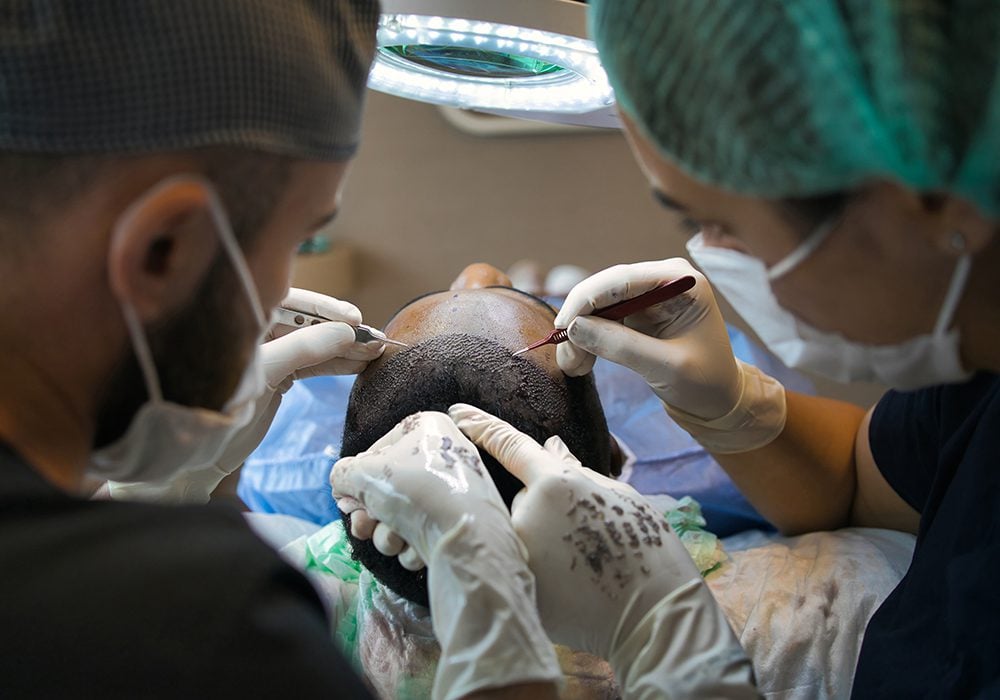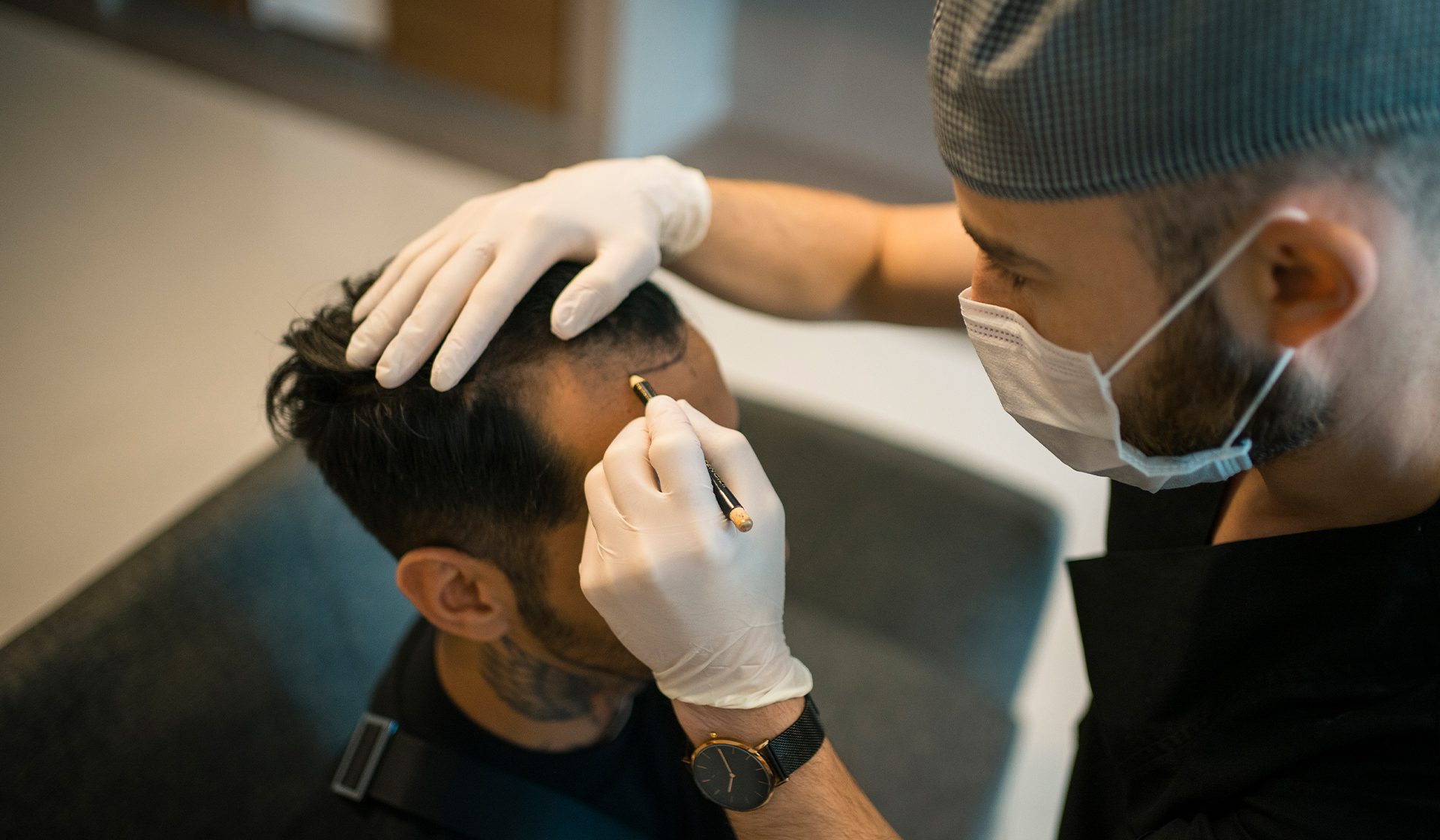Hair Transplants In Turkey: Should You Get One?
The hair transplant industry in Istanbul, Turkey is reportedly worth more than one-billion US dollars. Every year, over 200,000 people travel there from all over the world in hopes of regaining their hair. However, the industry in Istanbul is very lightly regulated and, therefore, in your average clinic the work will be performed by a technician, not a doctor, which to me rings alarm bells.
While the Turkish Ministry of Health sets industry standards that are in line with EU regulations, there is no obligation for clinics to divulge how many procedures they perform, and membership of medical associations remains voluntary. Transplant practices can have multiple clinics – all working under different names and offering different prices – so there’s no real way to compare apples with apples.
Stats around the numbers of hair transplants are also not readily available. It’s estimated that up to 2,000 procedures are carried out each day in Turkey, and some clinics will perform up to 50 transplants daily. Unsurprisingly, this begs the question: is profit the priority over patient care standards? I recently featured in a Bloomberg documentary discussing this specifically:
Surgery Has Become A Commodity
There’s no question that hair transplant surgery has become a commodity – something that can be offered and traded for the cheapest possible price. In my opinion, this is a travesty. People have to remember that this is actual surgery. It’s not like going to a barber shop. There’s blood involved, there’s anaesthetic for pain, there’s permanent scarring and genuine recovery time. Why would you entrust your physical wellbeing to anyone other than a fully-fledged medical professional who is highly trained in this specialty?
In the wrong hands, hair transplants can cause devastating results. At best, the transplant can be poorly done and needs to be repeated (by someone with actual skill and care). At worst, there can be life-threatening infection, disfiguring scarring, nerve damage, and even allergic reaction to anaesthesia.

We shouldn’t stereotype, though. There are some extremely trustworthy, licensed clinics in Turkey run by excellent surgeons. But medical tourism – in any country – has a lot to answer for when dime-a-dozen operators set up shop and invest untold sums of money in social media marketing. Their glossy ad campaigns promise superior results, assure health and safety, and invite you to have a good time while you’re at it. All for thousands of dollars less than what you would pay at home. Younger men are particularly susceptible to these persistent retargeting ads, which keep plugging away, multiple times a day, every time a guy picks up his phone, until he’s been so overexposed to the bright lights and perfect hair on promise, that he wouldn’t even dream of researching options at home.
You can hardly blame them for being suckered into a promise of a hair transplant at half the price he might pay elsewhere. These men are so desperate and so vulnerable that they respond with a knee-jerk reaction when they see an irresistible offer. Even so, I can’t help thinking how ludicrous it is for patients to find a clinic via a sponsored Instagram advert and then choose to fly to Turkey from the USA or the UK seeking surgery. When you live in a country known for its superior, world-class medical care, why would you put your wellbeing in the hands of operators in another country?
How To Find A Trustworthy Clinic

In my work as a patient advocate in the hair loss industry, I can tell you that I’ve spoken to countless men who’ve jumped on a plane to chase their hair transplant surgery and hugely regretted it afterwards. And it’s because many clinics don’t perform surgery with the patient’s best interests at heart. In the UK, there’s a high number of repair patients, and I was one of them. I’ve had 13 hair transplant operations, mostly because of the lousy work that was done when I was younger. You really don’t want to find yourself in the same situation – the impact on your physical and mental health, as well as your bank balance, is huge.
This is why I feel so passionately about this subject – because I’ve been through it, and don’t want people to make the same mistake. So, what’s the solution? Well, it’s possible to find legitimate, patient-focused hair transplant clinics without having to suffer the consequences wrought by medical tourism, if you know where to look. Start by reviewing the approved surgeons list on the International Alliance of Hair Restoration Surgeons website. Each and every surgeon that has been accepted as a member of the IAHRS is highly experienced, ethical and an expert in their field. Although their fees will be higher than those you will find in medical tourism hotspots, remember that this is the ‘going rate’ you should expect to pay for safe, reliable medical care that will deliver long-term results. Never skimp on your health.







